|
As Kermit the frog famously said - ‘It isn’t easy being ‘green.’’This is one of the most important lessons I learned from our pilot EcoTour to the Philippines, a tour intended to explore the creation of a new program to be offerred to students or adults interested in seeing firsthand how coastal communities near and surrounding our sister city of Palo, Leyte, Philippines, deal with their environmental issues. From climate change, to overfishing, to habitat destruction from severe climate events and people. I learned It takes bravery, determination, and the inclusion of the entire community to save the environment. For success, it is necessary to include fishermen in sustainable fishing practices, to educate villagers on the benefits of the new trees being planted nearby, and to constantly remind people everyday about the importance of the environment and of sustainable practices.
0 Comments
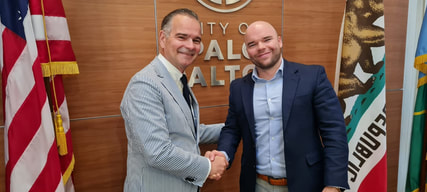 Albi's head of international relations, Jean-Luc Dargein-Vidal, left, enjoyed meeting Palo Alto Vice-Mayor Greer Stone. Albi's head of international relations, Jean-Luc Dargein-Vidal, left, enjoyed meeting Palo Alto Vice-Mayor Greer Stone. We were delighted to welcome a delegation from our French Sister City in September 2023. With an eye toward expanding existing programs and rolling out new collaborations for the 30th anniversary of the relationship, the three-member delegation spent five busy days meeting with local business leaders, Stanford University energy sector thought leaders, Palo Alto elected officials and city staff, directors at the Cantor Arts Center and the Palo Alto Arts Center, the city's sustainability team, and the directorship of Neighbors Abroad, among others. Frédéric Jung, the French Consul General in San Francisco, participated in a meeting at Palo Alto City Hall with Vice Mayor Greer Stone. Palo Alto Mayor Lydia Kou graciously welcomed the group at one of several lively social events. The delegation also enjoyed time in San Francisco and Carmel, where the famous Carmel Mission features a beautiful plaque in honor of Albi Native Son Jean François de Galaup, Comte de Lapérouse. See a gallery of photos here. By Toby
Tsuchiura is a special place for me and my family. My dad was invited by Tsuchiura city to run the Kasumigaura Marathon back in 2013 so I got to visit Tsuchiura when I was 4. Unfortunately I don’t remember anything, but the photos show we had a great trip. My mom went to University of Tsukuba near Tsuchiura for college. So when I had the chance to go visit this summer through this program, it seemed like a great opportunity. I wasn’t sure of my choice initially, but after the trip, I was decidedly glad I had gone. I have been to Japan many times before to visit my grandparents, but I was left with a completely new and different perspective after this trip. Not only did I get to experience new and exciting things traveling across the country, but I got to meet new people, try new types of food, and see new places. I got to visit the floating torii gate of Miyakojima (where they recently had the G7 Summit), visit the Hiroshima Peace museum, and try new foods like okonomiyaki. Originally, I was nervous because I had recently become vegetarian, and because a lot of Japanese meals consist of meat and fish, I was worried that it would cause a lot of stress on my host family. However, when I arrived in Tsuchiura, they greeted me with a welcoming sign with my name and prepared delicious vegetarian meals for me. I enjoyed making tofu “burgers” with my host family, which were one of the many special meals they made to accommodate me. I found the Japanese Junior High to be very orderly and structured. The family made sure I fit in by having a school uniform ready for me. I’d never been to a school where everyone wears uniforms. It does make mornings easier to not have to think about what to wear. When I did my introduction in Japanese to the class, students were welcoming and asked many questions about my dog. It seems like dogs are humans’ best friends in Japan as well. I was surprised to see students participating in preparing and serving nutritious hot lunches with multiple dishes, which is very different from my middle school where we simply line up to get a prepared lunch. My buddy and his sister were great hosts helping me navigate the school. My host family was very friendly and helped make my experience memorable. For example, they took me to see Ushiku Daibutsu, a massive statue of the Amitabha Buddha, said to be the fifth tallest statue in the world. Pictures don’t do it justice, it was so huge! I also got to see my buddy run in the track meet at a big stadium. It was fun to be a spectator at a Japanese track meet, and watch my buddy run very fast. This trip broadened my understanding of Japanese culture and gave me many new experiences that I will cherish for years to come. I am so grateful to my host family for their hospitality and generosity. I hope we stay in touch. I look forward to continuing my Japanese studies in high school. Finally, thank you to everyone who helped make this trip possible for us. Arigato gozaimashita! 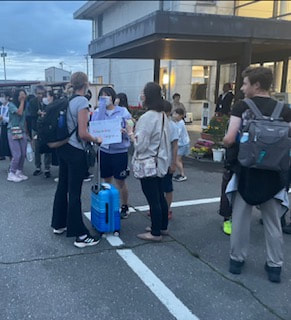 When our bus pulled into the Tsuchiura community center parking lot on June 14, 2023, we were greeted warmly by the Tsuchiura students and their families, holding up signs of each student’s name. In true Japanese fashion, we were treated to a program with City of Tsuchiura officials and staff as well as the President of Tsuchiura International, Yuko Fujita, who formally welcomed us to Tsuchiura before our Palo Alto students were ushered off to join the households of their homestay families. We had been an hour late and feeling weary from travel after visiting the cities of Tokyo, Hiroshima, Kyoto, and Himeji over a period of five days. The excited and eager faces of the Tsuchiura students and their families buoyed our spirits as the long-awaited homestay portion of the trip was finally here. It was a once in a lifetime opportunity for Palo Alto students to experience life in a Japanese household, attend a Japanese school, and be immersed in Japanese language, culture, and cuisine. Some people dismiss Sister Cities as a relic of the past, a hold-over from a post-World War II world when Sister Cities were created to build bridges across fractured borders. A June 2023 teen trip to Palo Alto’s Dutch Sister City served as a reminder that the past is not to be dismissed. Indeed, the past is often what matters the most.
The one-week trip to Enschede was the culmination of a cross-border high school essay contest we launched last year to honor a little-known Dutch Resistance leader from Enschede, Pastor Leendert Overduin, who saved hundreds of Jewish children and their families during the Nazi occupation of the Netherlands in World War II, then later helped the children of imprisoned Nazi collaborators. The trip brought together essay contest winners from a four-way Sister and Sibling City network that included Enschede’s German Sister City, Münster, and Palo Alto’s Sibling City, Bloomington, Indiana. Looking at the group of students through the lens of World War II, these were the descendants of the invaded, the invaders, and the liberators, who gathered in Enschede to learn about the horrors of the past and contemplate the promises of the future. Here are two of my biggest history-focused takeaways from the week-long trip: 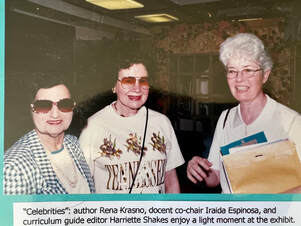 Little did I know when my kids used to carpool with Iraida Espinosa's grandchildren in the 1980s that the perfectly coiffed, always-elegant lady who used to hand out snacks during car rides was busy transforming the lives of young people on the other side of the Pacific. I would learn decades later, when I joined the board of Neighbors Abroad, that Iraida was instrumental in establishing life-changing programs in Palo Alto's oldest sister city, Palo, Leyte, the Philippines. The initiatives she helped establish when she was president in the 1980s included a children's library and scholarships for deserving college students. Those projects endure to this day. The number of scholarships over the years has dwindled down to 5 but the Palo Committee hopes to increase the number back to the original 9 and more. So when Iraida recently passed away at almost 105, we decided to honor her legacy by naming one of our scholarships after her for a student pursuing teaching and education, as Iraida was a teacher for many years at Walter Hays Elementary. 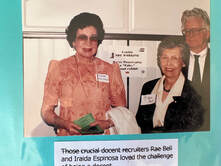 We owe Iraida and the other past Neighbors Abroad members a debt of gratitude for their efforts and countless hours spent laying the foundation for our organization. Iraida had just retired from teaching when she became the president of Neighbors Abroad, She worked tirelessly with Neighbors Abroad for more than two decades! We can use Iraida’s legacy as a call to action to do our part to bring people from across the world together to support one another and take Iraida’s words to heart when she wrote that we are all “members of the broader family of nations.” If you would like to help us expand our scholarship program for deserving and disadvantaged students, please click here.  By Monica Schreiber Visiting another country as an exchange student is a life-changing experience. Immersing yourself in a different culture and language leads to exciting new adventures and offers the rare opportunity to see the world from a new perspective. That’s certainly what we hear from the many young people who have participated in Neighbors Abroad exchange programs since the 1960s. 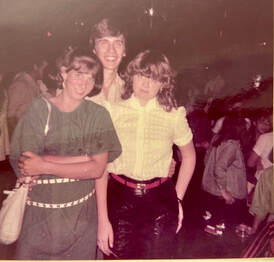 The author, left, as an exchange student in Brazil in the mid-1980s The author, left, as an exchange student in Brazil in the mid-1980s But it can all be overwhelming. Living with strangers. Navigating a new language. Being completely out of your comfort zone. Maybe even limited access to Starbucks (the horror). The payoffs are huge in terms of life experience, but it takes some effort to make the most of it all. When you’re visiting another country, whether on a Neighbors Abroad program or in any other capacity, you represent your home country. Fair or not, even well intentioned people often will make sweeping generalizations about “Americans” based on how you behave. This can be especially true for teens. The teens we send abroad—we think of them as Young Ambassadors—don’t just represent the United States, they proudly represent Palo Alto and the greater Silicon Valley region. That said, with a few tricks and gentle reminders, any teen (or adult!) can go forth into the world with all the confidence of a foreign diplomat. Here are a few tips for winning hearts and minds – and ultimately having the time of your life:
The great thing about these practices is that they will serve you well at any point in your life, whether you’re navigating high school, college, starting a new job, or embarking on a new relationship. Ask questions, be engaged, smile, try new things, express gratitude, use your knife and fork correctly, and … Put. Down. Your. Phone. Neighbors Abroad offers long-running exchange programs in Oaxaca, Mexico, and Tsuchiura, Japan. We also offer opportunities for students and adults to visit our Sister Cities in other capacities. Click here for brief summaries of Neighbors Abroad’s exchange programs. Email [email protected] for more information. I’ll put you in touch with the right person. 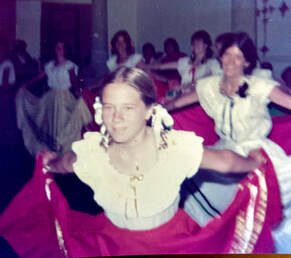 By Sarah Burgess I’ve always heard that life comes full circle, but perhaps never fully appreciated that saying until now. In 1975, I went to Oaxaca as part of the Neighbors Abroad exchange program. That summer experience (six weeks in Oaxaca, four more weeks with our Oaxaca siblings here) changed my perspective on life, my cultural awareness, and made me a Spanish speaker. I made lifelong friends. I danced the Guelaguezta dances I learned in Oaxaca in the May Fete Parade and at Neighbors Abroad functions. The next year I got my first summer job working for Adventure Travel Service in Palo Alto where one of the owners was the President of Neighbors Abroad at the time. I made travel reservations for the incoming exchange students, and chaperoned the Oaxacan kids going to Disneyland and back home. Of course, life catches up. I graduated from college and law school, my Oaxacan family and I lost touch, I had a family of my own, I used Spanish in my legal practice and hoped it wasn’t getting too rusty. Fast forward to 2018, when I chatted with Bob Wenzlau, who I knew from our kids' school and sports. Turns out, he was now President of Neighbors Abroad, which I knew was being reinvigorated. Finding out about my Oaxacan connection, he asked if I’d help with Oaxaca. In saying yes, I thought I’d be giving back. Turns out Neighbors Abroad is the gift that keeps on giving. I have been so enriched, once again, by my involvement. What a wonderful, hard working group of people to work with and make friends with--all devoted to international relationships. 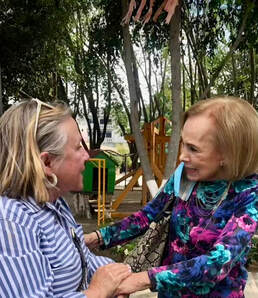 I had not seen my Oaxacan host mother since 1975 when she surprised me on a recent trip to Oaxaca. I had not seen my Oaxacan host mother since 1975 when she surprised me on a recent trip to Oaxaca. My high school Oaxaca connections have continued to grow, as well. One of the students I had chaperoned, Flor Sanchez, is a principal in our partner, Vidas y Suenos, and succeeded me as VP of Oaxaca. When I visited Oaxaca in April 2022, a surprise awaited me: my Oaxacan mother, with whom I had lost touch, was waiting to see me at the Albergue Josefina, a home for vulnerable children whose families cannot care for them. Neighbors Abroad has supported the Albergue for many years. I take over as President from Bob Wenzlau, who has done so much for Neighbors Abroad - brought it from an organization which was searching for present day relevance to the place we are today. I cannot thank him enough for all the effort he has put in--and the results are clear. In the last week, I have met with representatives from Ukraine, China, and Sweden, all trying to accomplish the same mission: to create relationships which transcend politics and national constricts and see each other as people, living in the same world. Join us. We are working together to form friendships, promote a sustainable future, make connections on a personal as well as business level, and create education and cultural opportunities. Everyone is welcome. |
Neighbors Abroad BlogMusings and Missives for a Small World Archives
March 2024
Categories |
|
ABOUT NEIGHBORS ABROAD
Neighbors Abroad fosters Palo Alto's domestic and international engagement through friendship, education, commerce, and sustainability. We are a 501(c)(3) nonprofit organization. |
ORGANIZATION
Neighbors Abroad 355 Alma Street Palo Alto, CA 94301 Phone: (650) 503-3343 EIN: 94-6103013 |

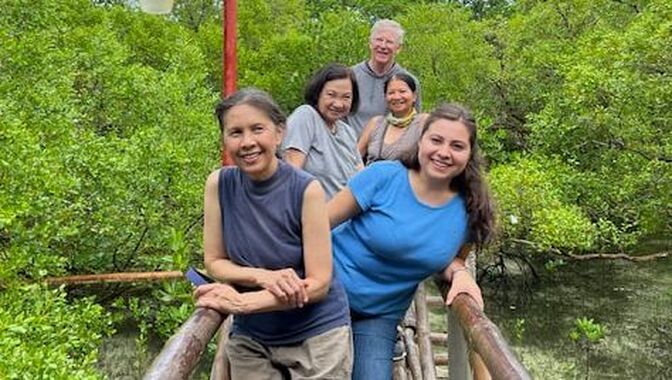
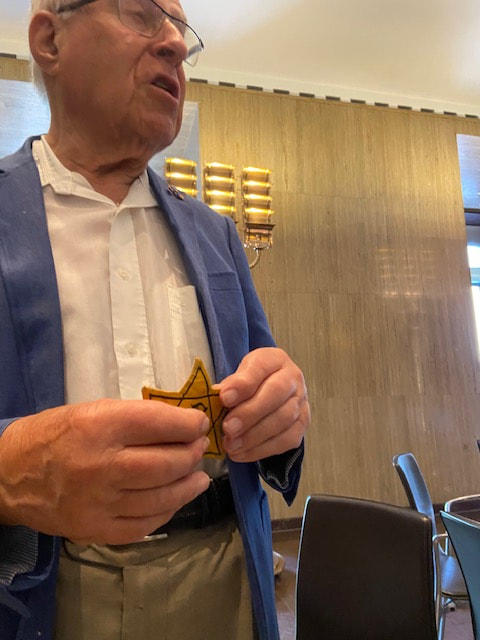
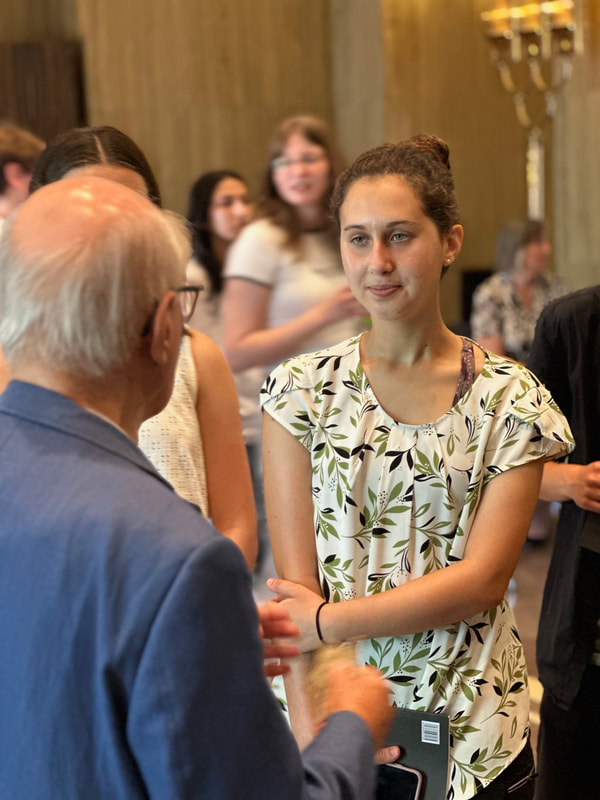
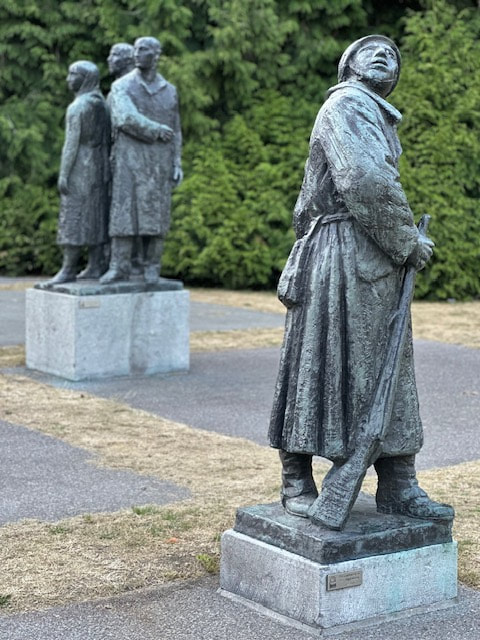
 RSS Feed
RSS Feed